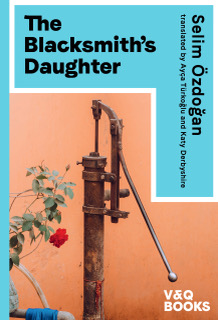In this week’s blog post, our colleagues from The Queen’s College Translation Exchange share details of their next International Book Club meeting – a really wonderful opportunity for school students to engage with literature from around the world!
The International Book Club for Schools is a chance for pupils in Years 11, 12 and 13/S4-6 to explore foreign language books which have been translated into English with other like-minded, literature-loving students. We meet once a term over Zoom to discuss a foreign language book in English translation. No knowledge of the original language is required to take part and newcomers are always welcome!
For students thinking they may like to study languages at university, there will also be a chance to hear more about what this would entail and to ask current undergraduates and admissions staff your questions. These meetings are also a perfect opportunity to explore beyond the school syllabus and to engage with some exciting literature in translation.
Our next session will be held on Tuesday 28th March at 7pm, in partnership with specialists in translated Arabic-language fiction, ArabLit, and the Oxford Faculty of Asian and Middle Eastern Studies. We will be reading Out of Time, by Palestinian writer Samira Azzam, translated from Arabic by Ranya Abdelrahman. These 31 short stories weave a rich and intricate tapestry of life in Palestine and Lebanon in the 1930s and 1940s, exploring how people from all walks of react to volatile circumstances and rapid historical change. Discussion in the session will focus on ‘Tears from a Glass Eye’, whilst also touching on ‘A Roc Flew Over Shahraban’ and ‘On the Road’. We also recommend that you read the introduction (along with as many of the other stories as you’d like to or have time for!).

To take part in the International Book Club, attendees will need to purchase and read a copy of the set book in advance of the session. Arablit have been kind enough to offer a discount for book club attendees: 20% off a paperback or an e-book for $1.79 (this is slightly under £1.50). The exclusive discount code will be shared with the students over email once they have registered for a place. If the financial situation of some students makes it impossible for them to purchase a copy of the book as discounted, please do drop us an email and we will do our best to work something out.
They may also like to make some notes as they go, although all discussion within the meeting will be informal. We will also share some materials in advance of the session, including some prompt questions to get them thinking and an interview with the book’s translator.
Students are able to register to attend our next book club meeting by completing this Google Form.
If you have any further questions about the Book Club, please let us know! You can drop us an email (translation.exchange@ox.ac.uk), or find us on Twitter (@TranslationExch).

